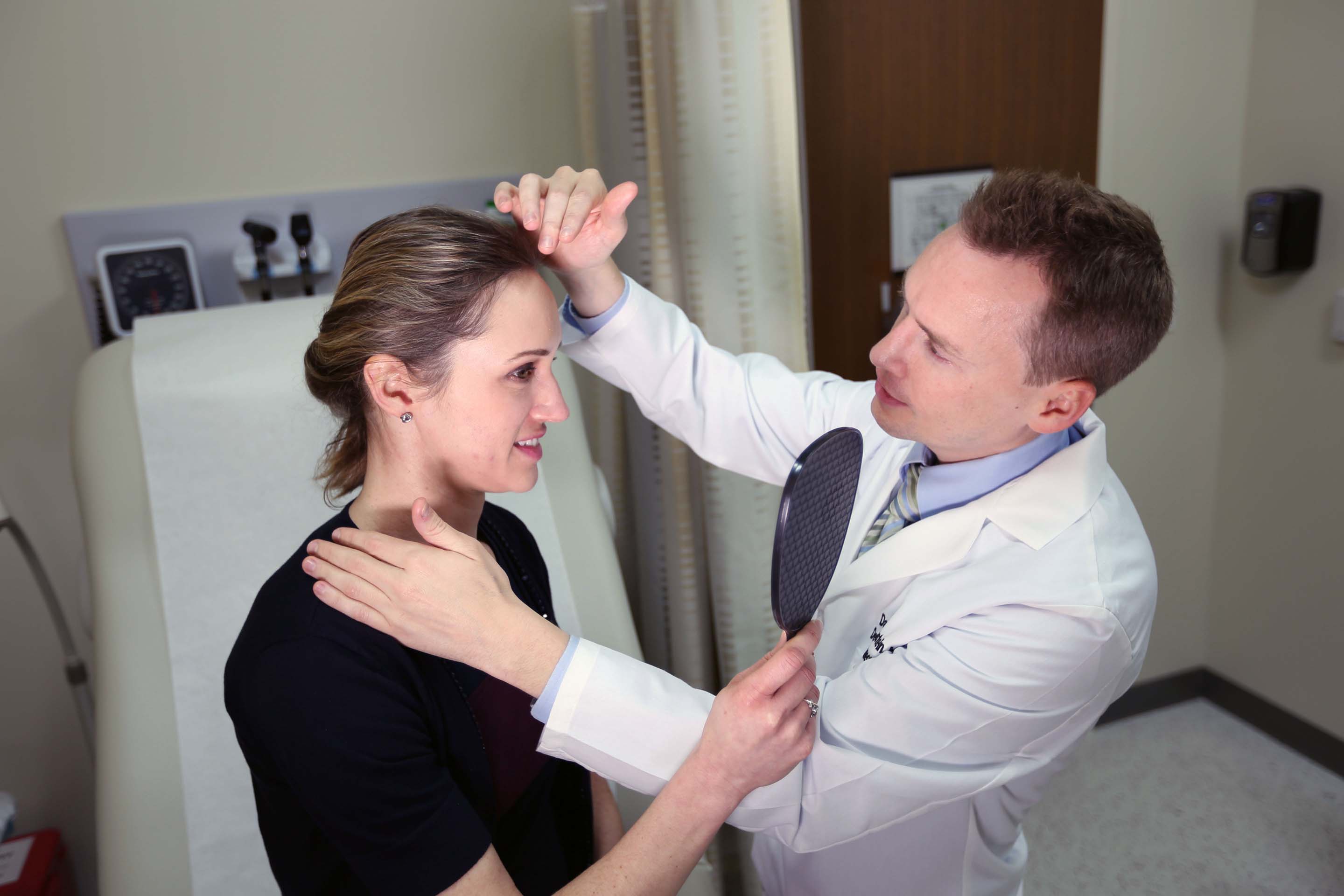The skin is the body’s largest organ so it’s no surprise that it mirrors health and illness. “Often, when people come to see me it is because something is painful or it has been there a long time,” says Dr. David Weinstein, a dermatologist at UCF Health, the College of Medicine physician practice. “In today’s busy world, people don’t put much emphasis on a little rash or bump. But skin can be a great window to your underlying health. Illness can show symptoms through the skin and nails.”
While most skin conditions are exactly that, a skin condition, the examples below show how an underlying health condition may be causing skin changes. Pay attention to changes in your skin and contact a physician if something new creeps up.
Skin discoloration: This could just be a tan, but it can also be a sign of liver disease such as liver failure with jaundice or a sign of hemochromatosis. If you notice a change in your skin color, particularly if it takes on a yellowish hue, see your doctor to rule out any liver conditions.
Skin tags on the neck: Skin tags are small, narrow skin growths that stick out. But when accompanied by darkening and mild thickening of the skin, this is called acanthosis nigricans and can mean insulin resistance and increased risk for developing diabetes.
Rash: Rashes are common during childhood, especially with certain viruses. When an adult gets a typical rash of red bumps covering a large portion of the body (maculopapular rash) this can be due to a virus such as measles or hand, foot, and mouth disease. But serious viruses like hepatitis B and C, AIDS and syphilis can also cause rashes. So can an allergic reaction to a drug. When you develop a rash, the sooner you seek help the better. Most rashes that are due to irritation or mild allergic reaction should fade within a day or two of using a cortisone cream. If the rash persists, seek medical attention quickly.
Sunburn or sun poisoning: Sometimes people simply get a bad sunburn, but if you consistently get a moderate to severe rash anytime you’re in the sun, this can be a sign of an autoimmune disease such as Lupus or something less serious such as a photosensitive drug reaction or rosacea. A dermatologist can performs tests to identify the cause for the reaction and help you find ways to avoid it.
Clogged pore or bump that will not go away: When people think of skin cancer, they often associate it with brown moles. But the most common types of skin cancer are usually not mole-like. Raised bumps that are pearl-like, or even pink or red can also be skin cancer. When these are on the face, people often mistake them for clogged pores or pimples. If the bump does not go away within a week or two, ask a dermatologist to have a look at it.
UCF Health offers primary and specialty care under one roof for patients age 16 and up. All physicians are faculty at UCF’s medical school, and care for patients using the collaborative, evidence-based practices they are teaching to tomorrow’s doctors.
UCF Health
407-266-DOCS
UCFHealth.com
Two office locations!
East Orlando & Medical City




Comments